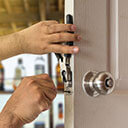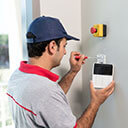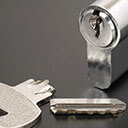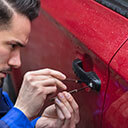WHY YOU SHOULD KEEP A SAFE IN YOUR HOME
You’re Better Safe Than Sorry!
Businesses, banks, and billionaires have safes. But why should regular people like us keep a safe? If you live in a comfortable neighborhood, you may view a safe as unnecessary. On the other hand, if you’re in an unpredictable area, you’re probably at least curious about what kind of safe you should have. You might still be wondering: What would I put in my safe, anyway? Actually, there are a number of good reasons to buy a home safe ~ some of which may not have occurred to you.
Just about everybody owns valuable objects of some sort, cherished heirlooms, important documents, and collectibles. Why risk misplacing or losing them? Here are some critical points to consider:
Prevent theft. A safe prevents a thief from stealing your beloved possessions. Guarding your prized items inside a safe will give you peace of mind. What if you often throw parties at your place? Do you have a lot of house guests? When groups of people come to your home, you cannot possibly keep an eye on everyone. Therefore, it’s a comfort to know that your irreplaceable items will remain unscathed inside your safe.
You’ll always know where your stuff is. If you are prone to misplacing your things, keep your important items in a safe, and you’ll never lose them again.
Protect against fire. In case of fire, a high-quality safe will defend whatever is inside from destruction. What would happen if you were to lose these fundamental items to fire?
- your will
- safe deposit box keys or other important keys that you use rarely
- passports
- copies of your driver’s licenses or other identification cards and papers
- mortgage records
- rare coins or stamps
- birth certificates
- insurance papers for filing a possible claim
- documents regarding any properties you own
- tax records
- a list of family doctors with contact information
- emergency cash
- pharmacy and prescription medication information
- outstanding loans and other debt records
- bank account information
- powers of attorney, healthcare proxies, & living wills
- retirement plans
- investment documents
- funeral arrangements
- titles to all your vehicles
A shield against floods. If a flood should come, or any type of water-related disaster, when you have the proper safe, whatever is inside it will stay intact.
A safe is superior to a safety deposit box. You may figure that a safety deposit box kept at your bank is a lot better than a safe you have at your home. However, a home safe really does give you a few advantages:
- You have 24/7 access, rather than just during office hours.
- Believe it or not, at a bank, the contents of a safe deposit box are almost never insured. But your home safe’s items will typically be covered by your homeowner’s or renter’s insurance policy.
- Any cash kept inside a safety deposit box is not FDIC-insured.
- With a home safe, you’ll make a one-time investment, rather than paying a monthly charge.
- Your home is fully private, rather than public. Anytime you wish, you can take items out, and put them back in.
- Upon the death of a loved one, if you are the beneficiary, you may assume you can open that person’s safe deposit box; but the truth is, a bank will routinely seal a safety deposit box as soon as it receives a death certificate, which means you won’t be allowed to open it until the estate representatives give the court papers to the bank.
Keep your family out of harm’s way. If you own weapons, it’s imperative that you prevent them from falling into the hands of a child or intruder. Avoid danger and tragedy: Don’t allow anyone but you to gain access to your guns, knives, explosives, axes, or any other harmful items.
Restore computer data. Of course, you must always store backups of everything on your computer. Furthermore, when you keep all the data in your safe as well, if you ever encounter computer glitches of any kind, your files will be totally retrievable. If your computer ever suffers a complete hard-drive crash, you’ll be able to restore everything from your backup in the safe.
Preserve family photographs. You can keep digital copies of all your treasured family photos in your home safe, and also keep any older family photos. Such photographic memories are virtually otherwise irreplaceable.
Do your homework. Conduct in-depth research so you can land upon the best safe for your home. Ask yourself the following:
- Where’s the most secure location in your home to place the safe?
- How big does the safe need to be?
- Look at the industry standards for water-resistance and fire-resistance levels.
- Do you want your safe to be hidden or visible?
- Industry guidelines indicate the security rating for each safe manufacturer. What level of security is right for your situation? Do you want a basic combination lock, or something more sophisticated, such as a retina scan, or any features in between? Do you want a mere metal box? Or something significantly anchored?
- What company will you be able to contact if you face technical problems?
- Which individuals will you trust to know how to open the safe?
- Are there any additional factors to consider for the proper protection of your specific items ~ such as temperature, humidity, light, and so forth?
- What’s your backup plan, should someone misplace the information necessary to open your safe?
Locksmith Articles
- Have you lost your transponder key
- What to do when dealing with ignition cylinder problems
- Why to call a locksmith during a lockout
- Access control
- Secure your home and garage
- Symptoms of car ignition problems
- Why you should keep a safe in your home
- What to do if your safe is jammed
- When to replace locks
- Having a key replaced better than having it rekeyed
- Additional security
- How to prevent them
- When you face problems with locks and keys
- Get help from a certified locksmith
- Various kinds of locks
- Protecting Your Home When Out Of Town
- VWhen You Should Call for Emergency Locksmith Help







